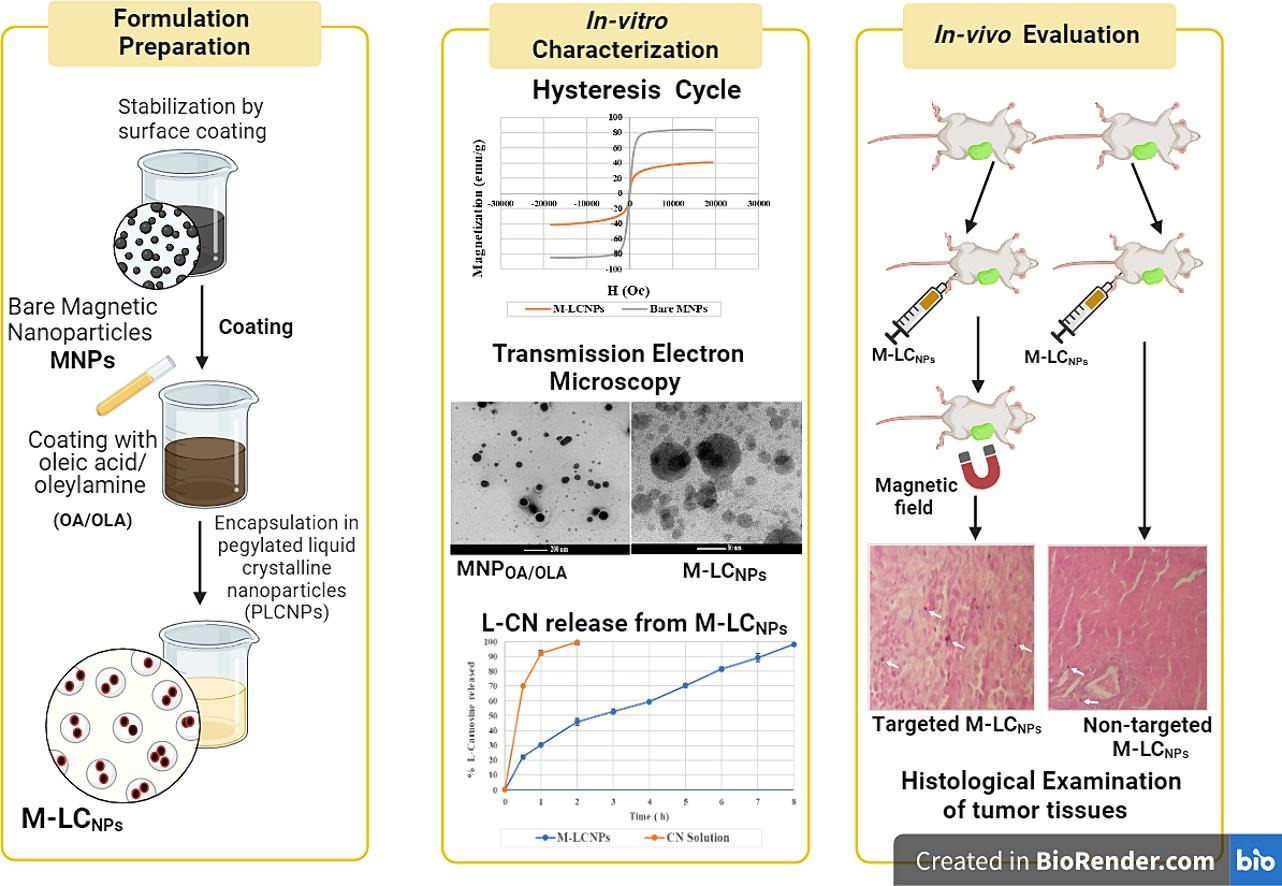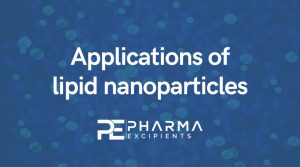Magnetic Lipid-Based hybrid nanosystems: A combined stimuli- responsive nanocarriers for enriched chemotherapeutic potential of L-carnosine in induced breast Ehrlich ascites tumor model

Magnetic Lipid-Based Hybrid Nanosystems (M-LCNPs) is a novel nanoplatform that can respond to magnetic stimulus and are designed for delivering L-carnosine (CN), a challenging dipeptide employed in the treatment of breast cancer. CN exhibits considerable water solubility and undergoes in-vivo degradation, hence restricting its application. Consequently, it is anticipated that the developed M-LCNPs will enhance the effectiveness of CN. To ensure the physical stability of MNPs, they were initially coated with a mixture of oleic acid and oleylamine before being included in pegylated liquid crystalline nanoparticles (PLCNPs).
The proposed M-LCNPs exhibited promising in-vitro characteristics, notably a small particle size (143.5 nm ± 1.25) and a high zeta potential (-39.5 mV ± 1.54), together with superparamagnetic behavior. The in-vitro release profile exhibited a prolonged release pattern. The IC50 values of M-LCNPs were 1.57 and 1.59 times lower than these of the CN solution after 24 and 48 hours, respectively. Female BALB/C female mice with an induced breast cancer (Ehrlich Ascites tumor [EAT] model) were used to study the influence of an external magnetic field on the chemotherapeutic activity and toxicity of CN loaded in the developed M-LCNPs.
Stimuli-responsive M-LCNPs exhibited no apparent systemic toxicity in addition to enhanced chemotherapeutic efficacy compared to nontargeted M-LCNPs and CN solution, as evidenced by a reduction of % tumor growth (11.7%), VEGF levels (22.95 pg/g tissue), and cyclin D1 levels (27.61 ng/g tissue), and an increase in caspase-3 level (28.9 ng/g tissue). Ultimately, the developed stimuli-responsive CN loaded M-LCNPs presented a promising nanoplatform for breast cancer therapy.
Read more here
Materials
These chemicals were purchased from Sigma Aldrich in the UK: L-carnosine, oleic acid, oleylamine, anhydrous ferrous, and ferric chloride. France’s Gattefosse generously donated glyceryl monooleate (MO). German company Lipoid GmbH sent m-PEG2kDSPE as a gift. Germany’s BASF provided the Poloxamer-407 (P-407). Human breast adenocarcinoma cell line MCF-7 was purchased from the American Type Culture Collection (ATCC), Virginia, USA.
Passent M.E. Gaafar, Ragwa M. Farid, Heba A. Hazzah, HussamElDin Y. AbouKilila, Maged W. Helmy, Ossama Y. Abdallah, Magnetic Lipid-Based hybrid nanosystems: A combined stimuli- responsive nanocarriers for enriched chemotherapeutic potential of L-carnosine in induced breast Ehrlich ascites tumor model, International Journal of Pharmaceutics, Volume 655, 2024, 124000, ISSN 0378-5173, https://doi.org/10.1016/j.ijpharm.2024.124000.
Find our overview article about the applications of Lipid Nanoparticles here:


